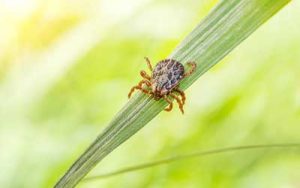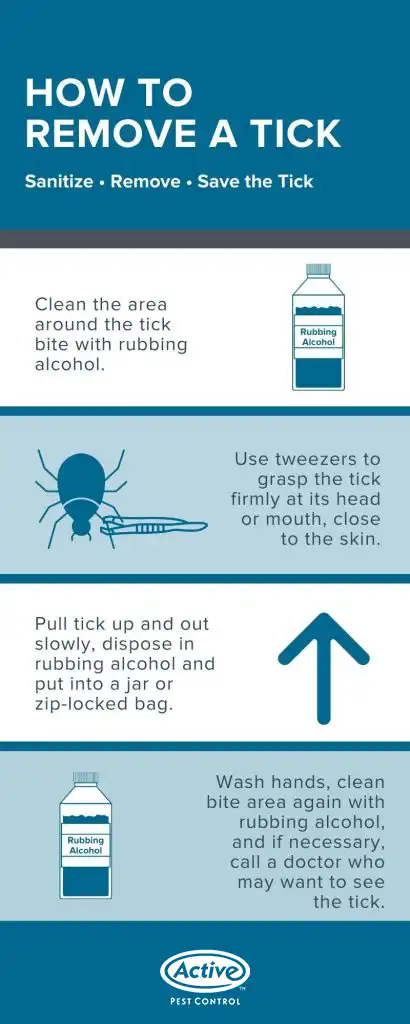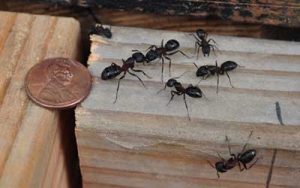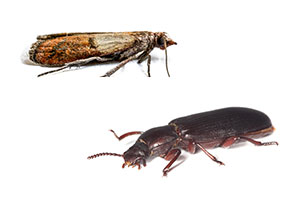
Summer is the season of mosquitoes here in Atlanta, but they can also be active in the spring and linger into the fall months. Mosquito activity sparks when the temperature begins to be consistently about 50 degrees Fahrenheit. They also prefer warm, humid temperatures and avoid daylight. We know mosquitoes are active in the early morning hours, but what about at night? Mosquitoes are very active at dusk, which is when many of us like to be outdoors in the summer.
By knowing about when and where mosquitoes are most active in your area, you can better protect yourself from their bites. Read on to learn more with the mosquito experts at Active Pest Control!
Mosquitoes at Night in Atlanta
In the heat of the day, mosquitoes typically prefer to hide in the shade to avoid getting dehydrated. Their aversion to the sun is why these pests are most active during the morning hours and at dusk, when the sun is at its lowest and the temperature is cooler. Because of their preference for shady areas, mosquitoes frequent shaded woods, wetlands, marshes, and ponds throughout the daytime. If you are spending time outdoors at dawn and dusk, it’s important to stay vigilant about preventing their bites. A natural way to stay safe from mosquitoes is to plan your outdoor activities in the middle of the day.
Preventing Mosquito Activity At Dawn & Dusk
Whether you’re planning on hosting an evening dinner party in your yard or want to take an early morning hike, it’s important to learn how you can best protect yourself against mosquito activity. Here’s what to do:
-
- When spending time outdoors in the summer make sure to wear loose, light-colored clothing. If possible, wear long-sleeved shirts and pants to keep your skin protected.
- Following the manufacturer’s instructions, apply an EPA-registered insect repellent containing DEET. Before using on children, make sure to consult your pediatrician.
- To prevent mosquitoes in your yard, cover or remove standing water, maintain your yard, and install fans to get the air moving and repel weak-flying mosquitoes.
Get Rid Of Mosquitoes At Night
If you are dealing with endless mosquito problems at night, it’s time to enlist the help of your local mosquito control experts. At Active Pest Control, our team will implement mosquito exclusion tactics to make your property less attractive to mosquitoes in the first place. To say goodbye to mosquito problems all summer long, contact us today to get started!

 As temperatures around Atlanta GA rise, so do the numbers of
As temperatures around Atlanta GA rise, so do the numbers of  Safely Removing Ticks
Safely Removing Ticks
 Have you noticed that pests start to get worse here in Atlanta as spring temperatures warm up? Wasps and bees begin to buzz around, winged insects crawl on your exterior walls, and you start to notice the dreaded ants crawling along your floorboards. Springtime is pest time nationwide. This time of the year is when many pests that were less active in the winter months begin to come out of dormancy. The reason why pest problems become so common in the spring, however, is because many of the pests were already lying in wait in the winter—right inside your home.
Have you noticed that pests start to get worse here in Atlanta as spring temperatures warm up? Wasps and bees begin to buzz around, winged insects crawl on your exterior walls, and you start to notice the dreaded ants crawling along your floorboards. Springtime is pest time nationwide. This time of the year is when many pests that were less active in the winter months begin to come out of dormancy. The reason why pest problems become so common in the spring, however, is because many of the pests were already lying in wait in the winter—right inside your home. Termites are often only discovered when the damage starts to appear, making them one of the most dangerous pest problems. In order to avoid the destruction associated with termite activity, it’s important to recognize the early signs of termites in your home. With termites at peak activity in the spring and summer, now is the time to ensure you are protected against an infestation! The termite experts at Active Pest Control are here to share their knowledge on the top signs of termites they see in Georgia homes year-round.
Termites are often only discovered when the damage starts to appear, making them one of the most dangerous pest problems. In order to avoid the destruction associated with termite activity, it’s important to recognize the early signs of termites in your home. With termites at peak activity in the spring and summer, now is the time to ensure you are protected against an infestation! The termite experts at Active Pest Control are here to share their knowledge on the top signs of termites they see in Georgia homes year-round.
